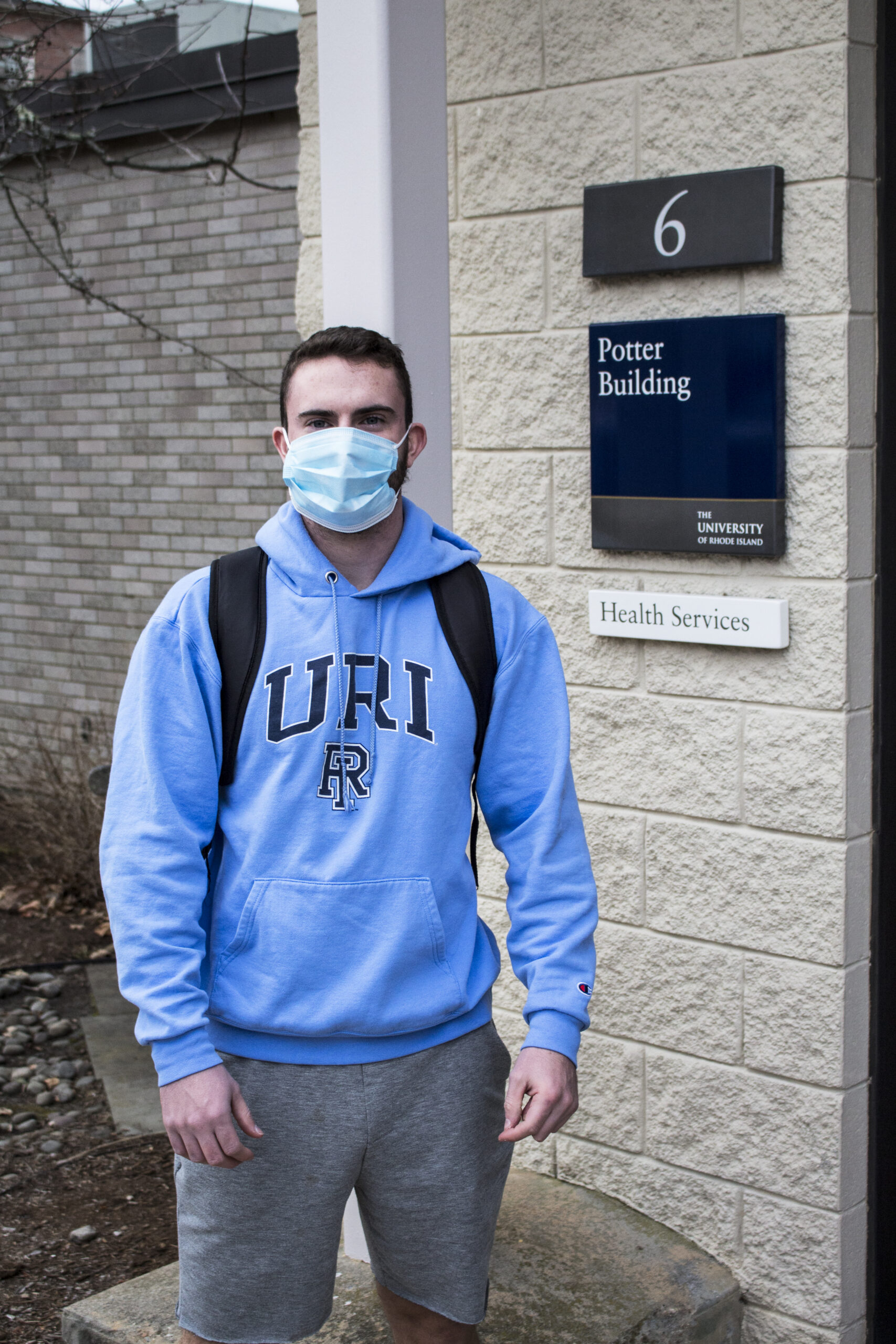Antiviral masks are now being offered by Health Services as the threat of the coronavirus continues. Photo by James McIntosh.
As the novel coronavirus, or “COVID-19,” has gained global attention, the United State’s influenza epidemic has fallen under the radar.
A reflection of the epidemic’s reach can be seen at the University of Rhode Island through the number of students that go to Health Services with influenza or influenza-like symptoms, according to Medical Director of Health Services Dr. Christopher Nasin.
Flu season is a predictable, cyclical event that happens every year, but the community should stay vigilant of their health nonetheless as ill-treated influenza can lead to more serious illnesses such as pneumonia or sinus infections.
Health Services offers free walk-in flu shots for any student interested. Although immunization is an important step for avoiding the flu, Nasin clarified that the shot’s effects are more complicated than most may think.
“It takes about two weeks before the influenza vaccine will give you immunity against the flu,” Nasin said. “Even if you do get the flu after the vaccination, the duration of the illness is going to be less and the severity is going to be less.”
Those that receive the vaccination and happen to get the flu typically only see the illness for a few days.
Beyond getting immunized, people can take further steps to keep healthy. The practice of good personal hygiene is important to prevent illness, such as washing hands and sneezing or coughing into your elbow or a tissue, according to Nasin.
Nasin also stressed that students who are experiencing influenza-like symptoms should practice self-isolation and maintain open communication with their professors while sick. Students, rather than retrieving a note from Health Services, have been advised to communicate with their professors instead about their illness for absences.
“We do that for two reasons,” said Nasin. “One reason is that we want to prevent spread to the rest of the community. But two is that you’re feeling pretty crumby when you have the flu and you should take it easy.”
The typical symptoms of the flu include fever, sore throat, cough, muscle aches and fatigue which usually go away after four to seven days, according to Nasin, but if the fever returns after the initial illness has resolved, it may be cause for concern.
“Thankfully it’s not that common, but it happens,” Nasin said.
As a nursing student at URI, senior Kelsey Gulla believes that getting the flu shot is very important. Gulla has gotten the flu shot every year and stressed the importance of this vaccination.
“I’ve seen it hurt children as young as 18 months old from parents opting out of vaccinations,” said Gulla, as a nursing major practicing her clinicals.
While children and the elderly are at a higher risk for a more extreme illness with influenza, college students of healthy stature are usually okay after the illness runs its course. Students with chronic illnesses such as asthma or diabetes may want to take Tamiflu to help with remedying the illness, according to Nasin.
In the current media, there seems to be confusion between the flu and coronavirus.
Coronavirus and influenza are both two types of cold viruses, according to Nasin.
“In fact, and I’m not talking about the novel coronavirus that we’re all worried about right now, but that class of viruses, that’s one of the causes of the common cold,” said Nasin. “It’s just not that particular strain.”
The COVID-19 is a novel coronavirus strain because it was transmitted from animal to human, according to Nasin. This form of disease transmission through animal exposure is more likely to cause more serious disease, which has been seen twice before in recent years with other coronavirus epidemics such as MERS and SARS. According to Nasin, this happens every five to 10 years.
The symptoms between coronavirus and influenza are similar such as respiratory issues. These similarities are what can make detection very confusing.
“The problem with the coronavirus is that people tend to have an over exaggerated immune response to the virus and that leads to overwhelming lung problems,” Nasin said. “It’s people who are older and have other medical comorbidities who are more likely to have that devastating response.”

